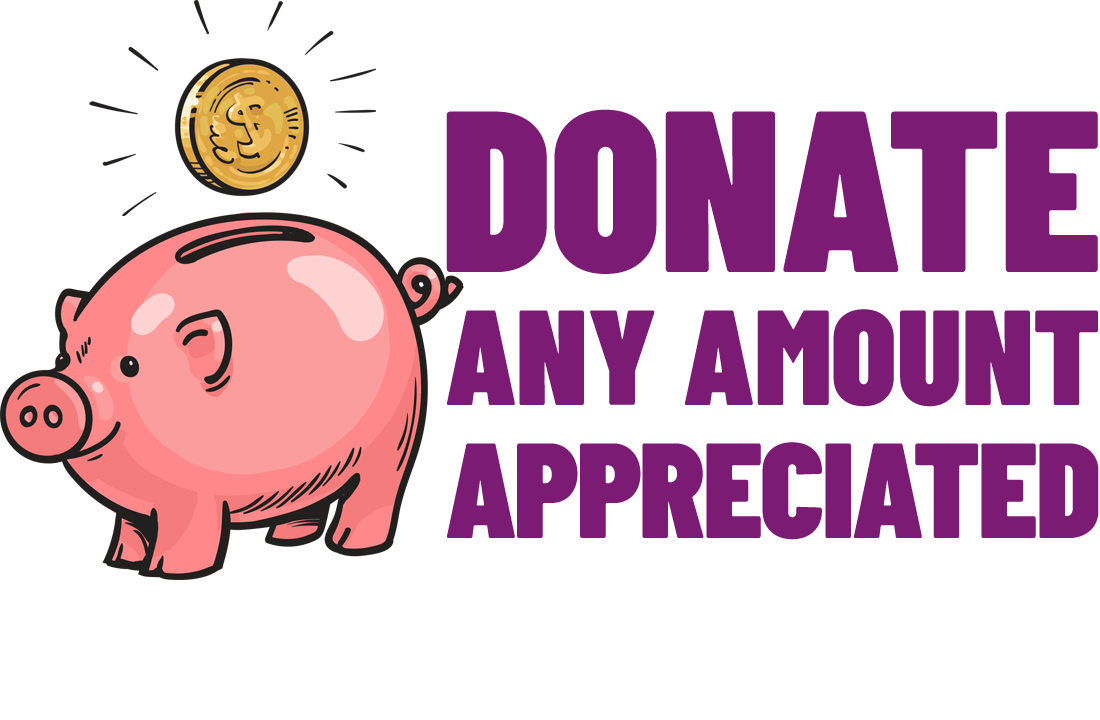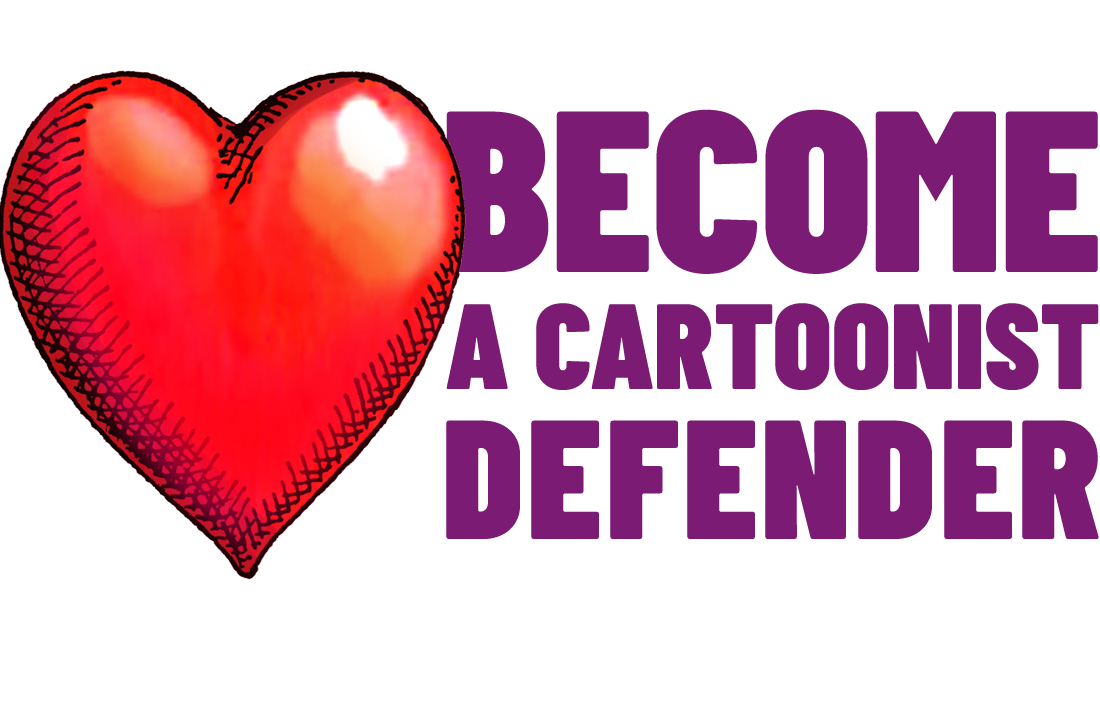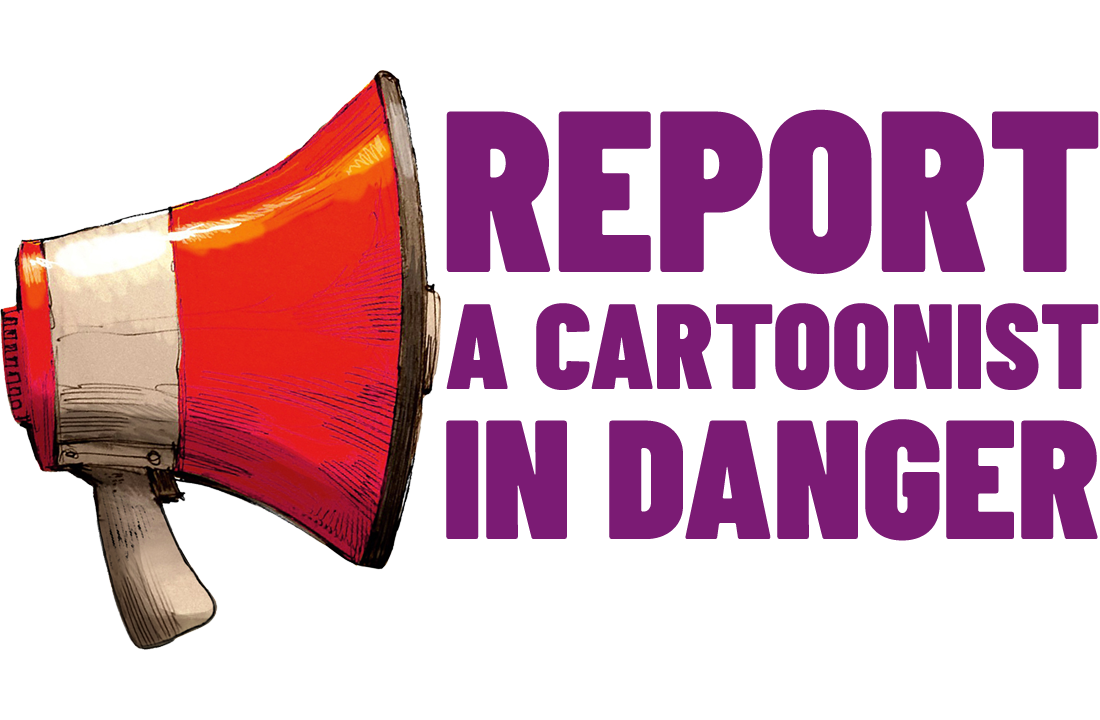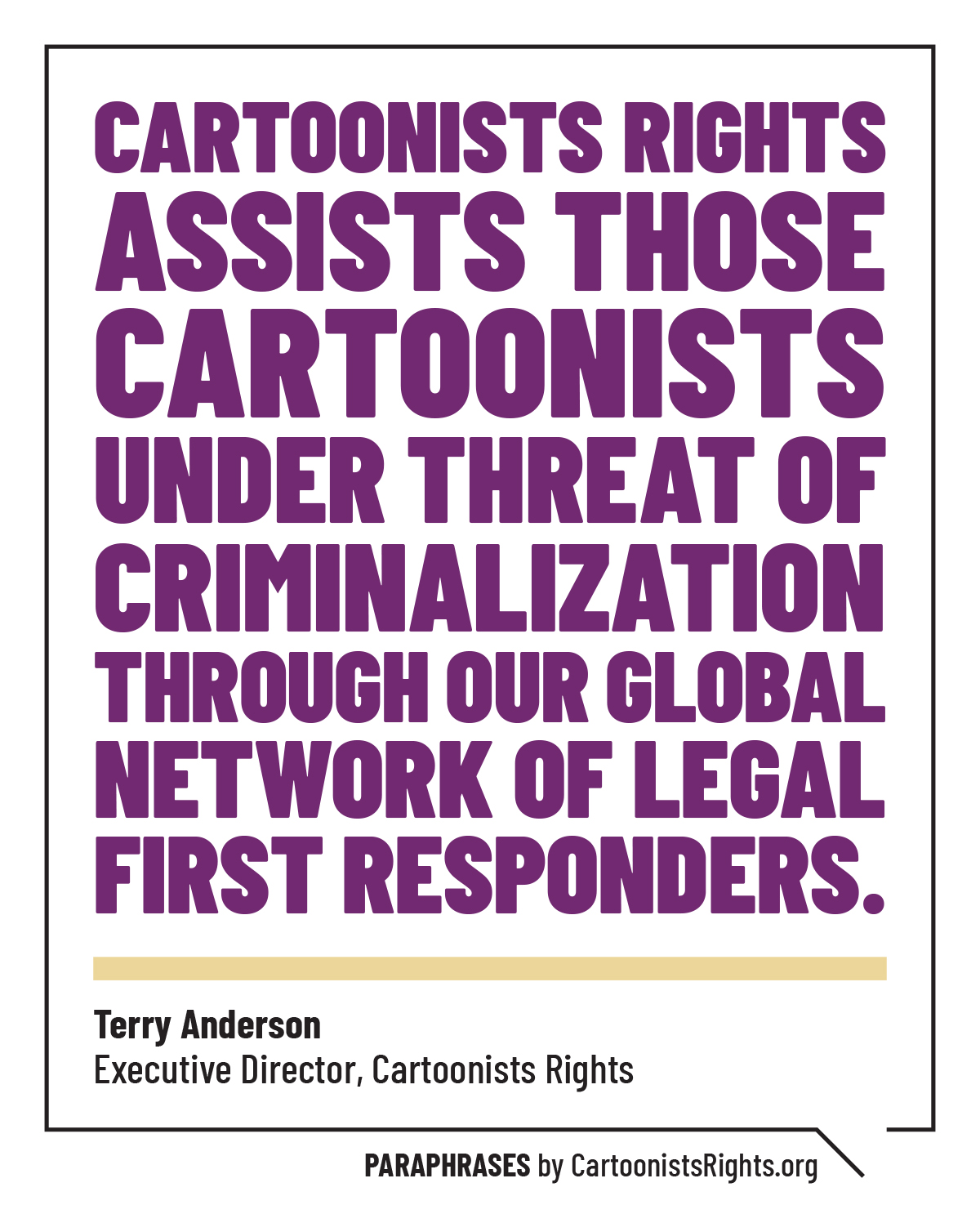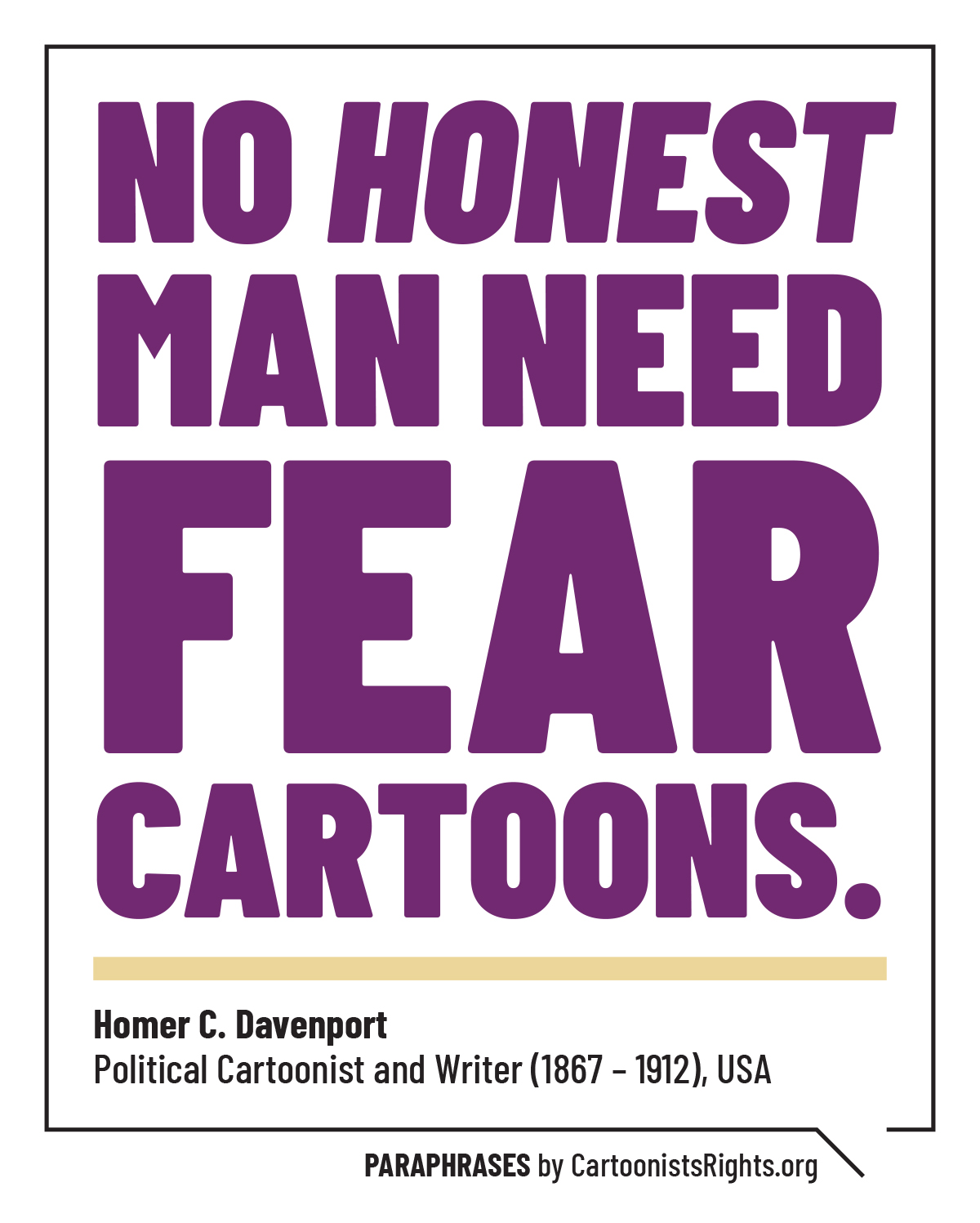
Besides our extensive advocacy work which reminds cartoonists and those who might infringe upon their human rights of the importance that they be allowed to pursue their work without fear, CARTOONISTS RIGHTS will intervene in instances where those rights are disregarded.
To this end, we have established an international network of legal practitioners to assist us in times that an intervention is required to secure the rights of a cartoonist under threat, under the cosh.
Our CARTOONISTS LEGAL ADVISORY NETWORK offers free guidance to those who meet the following criteria:
- Cartoonists who have been questioned, cautioned, harassed, arrested or abused by the police or any state or security agency – or have good reason to believe that they will be.
- Cartoonists who have received notice of a court action pertaining to criminal charges (particularly with regards to the work they do, or if they believe such charges are intended to intimidate them or silence their work).
- Anyone who believes that a change in their national laws will infringe on the rights of cartoonists to do their work, or render them liable for criminal prosecution.
Our network of dozens of practitioners spread throughout six continents is well placed to respond in a time of need, armed with the language skills and local knowledge required. They might be seen as first responders in a time of need, before the cartoonist secures full legal representation.
PROCESS:
PREPARE YOUR INFORMATION
We’ll need:
- your full name as it appears in your passport
- your country of residence and (if different) your nationality.
- if any, the criminal charges have been made against you; be specific and identify the laws that are accused of breaking (secular or religious) and which authority has laid these charges.
- your cell phone number (with international dealing code).
- your email address
- your website, blog, or other locations where your work can be found
- a high res copy of the cartoon(s) that got you into trouble, or links to them online
- the name and contact details of any professional association in your country offering support
- the name and contact details of any international association to which you belong
- a detailed description of any threat, action or attack against you
- if you’ve been injured, photographs of those injuries
- copies/links to any media coverage about the incidents described
CONTACT US
Cartoonists in legal trouble and who meet the above criteria are invited to send us an email to us HERE (you’ll find useful prompts for the information required, but please include any extra info that you can), or via any of the channels on our contact us page if you feel that is more secure. Also see ’SECURE COMMUNICATIONS’ below.
WHAT HAPPENS NEXT?
- We will contact you (or your representative if you’ve advised us of one).
- We will choose a secure channel of communication with you.
- Discuss your case and your needs.
- Confirm your information with you.
- We will then seek to confirm with our representatives closest to you that you are who you say you are (to avoid impersonation and so that we can focus our support on genuine cases).
- Once confirmed we will ask our panel of legal experts to advise us of a course of action and the next steps to get you the necessary support.
WHAT YOU CAN EXPECT
- An assessment of the merits of the case from a relevant expert.
- Guidance on appropriate next steps.
- Referrals to amenable legal defenders in your location.
WHAT WE DO NOT PROVIDE
- Full, legally binding opinions nor defence to those who need a lawyer in court.
- Financial aid with court costs.
- Assistance where the cartoonist’s legal troubles have nothing to do with their work.
- Guidance on any legal matter that does not pertain to criminal charges that arise as a result of the correspondent’s work as a cartoonist i.e. we will not accept enquiries about civil law matters.
ADVICE ON SECURE COMMUNICATIONS
Safe and secure online practice – especially if you suspect your security has been or may be breached – should not be taken lightly. Here are some tips.
- Always use a virtual private network (VPN) if you can.
- Never use public wifi hubs.
- Consider opening an encrypted email account such (as Protonmail).
- On mobile devices, use encrypted apps like Signal or Wire for both calls and messages.
- WhatsApp cannot be considered a secure means of communication, nor can private messages on social media such as Facebook, Instagram or Twitter; do not use these to transmit sensitive information.
ADDITIONAL HELP
Here’s some further assistance offered by our friends and partners…
- Cartoonists Righst is an advisory member to Artists at Risk Connection (ARC), an initiative of PEN America. We highly recommend their very thorough Safety Guide for Artists which covers information and strategies of relevance to all visual arts practitioners, including cartoonists. (The document is available in English, French and Spanish)
- Also our friends at Cartooning For Peace have a Practical Guide for Protection that is written specifically with editorial cartoonists in mind. (The document is available in English and French)

